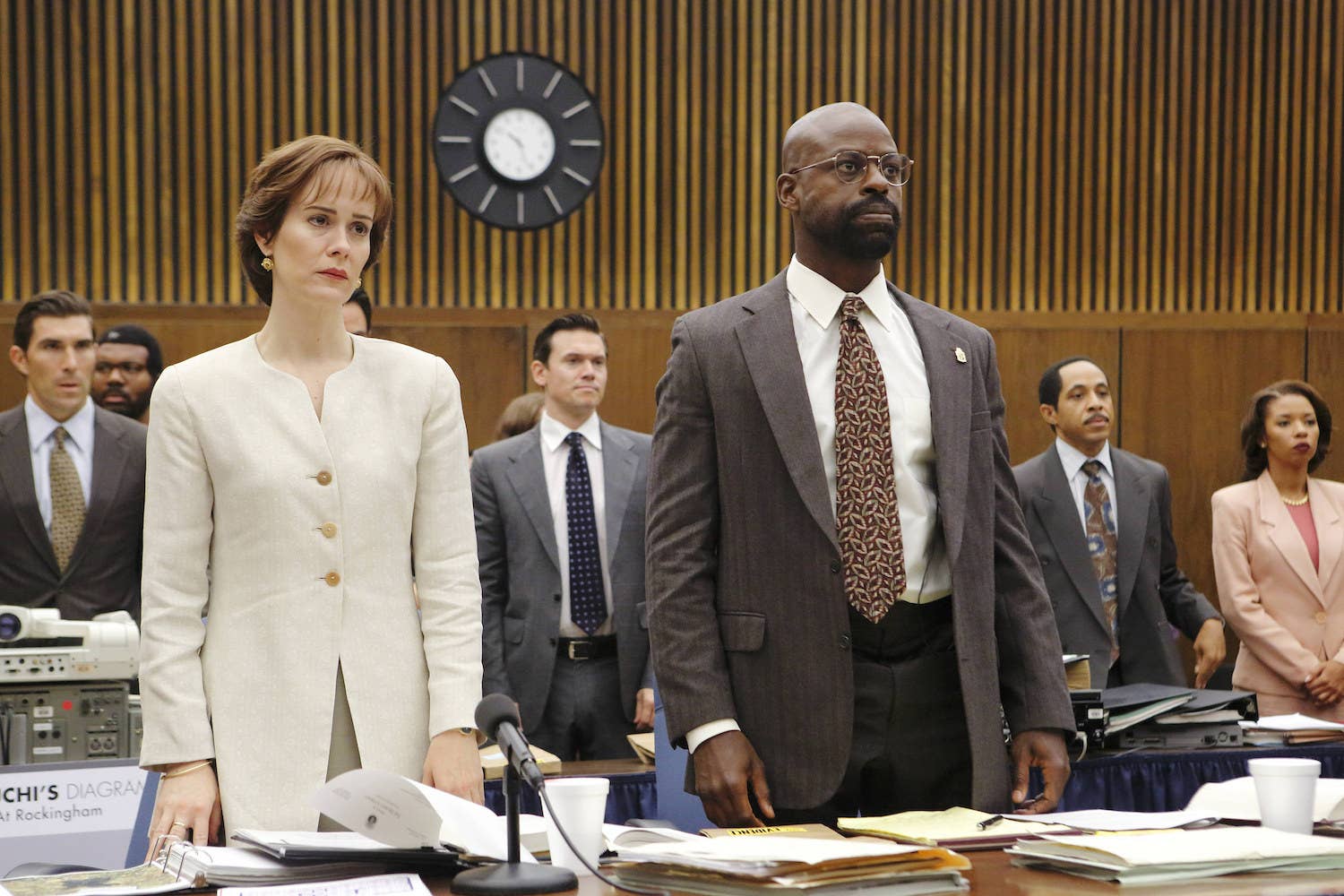
Though The People v. O.J. Simpson: American Crime Story is set in the mid-'90s, its deep dive into the issues that still plague us today has made the series among the most topical shows of recent years. And with its racially diverse cast, writing staff, and mix of directors, it could also serve as a prototype for Hollywood, as the largely intractable industry finally begins to reform itself.
The Bronco chase. The gloves. The Mark Fuhrman tapes. The O.J. Simpson trial was so cinematic as it unfolded in real life, its story has for years seemed unsuited for fiction: Why bother, after all? After nine episodes of well-acted, inventively paced, intricate storytelling in The People v. O.J. Simpson, it turns out that we were just waiting for the right version to come along. In Nielsen's Live+7 ratings, the show has drawn an average audience of 7.7 million.
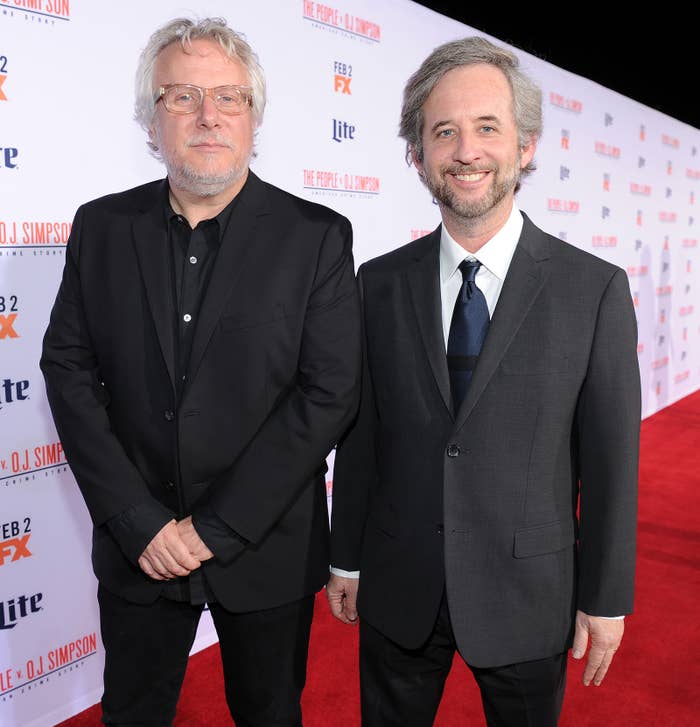
Larry Karaszewski and Scott Alexander developed the limited series from Jeffrey Toobin's 1996 book, The Run of His Life: The People v. O.J. Simpson. Successful feature-film writers, known especially for real-life stories such as The People vs. Larry Flynt and Ed Wood, Karaszewski and Alexander were hired by executive producers Brad Simpson and Nina Jacobson (of the Hunger Games movies) in early 2013 for what would be a first foray into television for all of them. The project was initially meant to be a miniseries for Fox, but it migrated to Fox's cable sibling FX in 2014. Soon after its move, Ryan Murphy signed on as an executive producer and director, and it became his second FX anthology series, American Crime Story, a follow-up to the successful American Horror Story.
Alexander and Karaszewski's office on the historic Culver Studios lot in Los Angeles — where Gone With the Wind and Citizen Kane were both filmed — would look like an airy, if overstuffed, professor's office, were it not for all the movie posters on the walls featuring the duo's past work. There was also a storyboard for their latest project: an adaptation of Toobin's next book, an account of the Patty Hearst kidnapping and its aftermath, due out later this year.
Over the course of more than two hours, Alexander and Karaszewski discussed The People v. O.J. Simpson with BuzzFeed News, delving into their approach, its characters, Simpson's guilt, and the series's intense parallels with contemporary horrors.
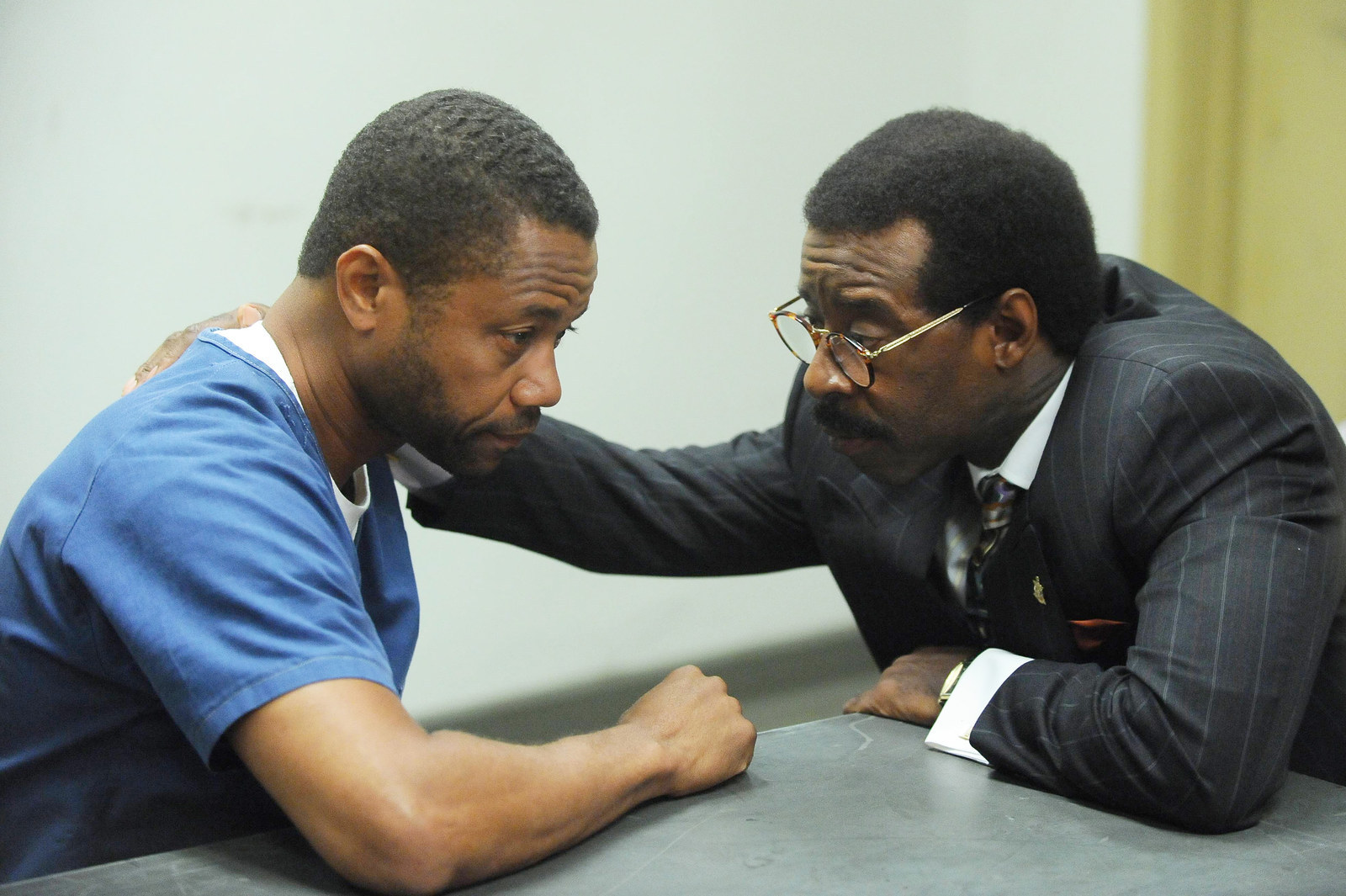
1. The writers read every book written by those involved in the Simpson trial, and had lengthy conversations about gender politics, racism, classism, and tabloid journalism.
The Run of His Life is the story of how the lawyers experienced the case, and through them, Toobin illustrates how the crime ended up providing an ugly reflection of racism, misogyny, class inequities, chaotic policing, media exploitation, and fealty to fame. Karaszewski and Alexander told Fox that they wanted to delve into all of those topics, using the same tone they had for The People vs. Larry Flynt. "A lot of serious stuff here, a lot of tragedy, but there's a lot of social satire," said Alexander. "We sort of said, 'We're going to cover it all! We're going to take it all on!'"
Given that the Simpson case had come to symbolize tabloid indulgence, everyone wanted a highbrow approach for The People v. O.J. Simpson. "No one wanted the exploitation version of it, or the cheesy version," said Karaszewski.
Toobin provided their base, but everyone involved in the Simpson trial had written a book — Karaszewski and Alexander read them all. In the earliest stages of writing, they would meet with executive producers Jacobson and Simpson for hours at a time. "Most busy producers don't carve out four-hour afternoons repeatedly just to talk idea where there's no agenda," Alexander said. "Like, What do we think it means to be a celebrity? We would just babble. Anything that sounded cool, Larry and I would scribble down. We would come out with a lot of heads-y liberal arts ideas."
It took them nearly a year to write the pilot. "But I think the project really benefited from all that luxuriating," Alexander said.
Marcia Clark (Sarah Paulson), Christopher Darden (Sterling K. Brown), and Johnnie Cochran (Courtney B. Vance) would be the primary characters, Alexander and Karaszewski decided, and would bear the series's thematic weight. When they formed a small writers room — adding Maya Forbes, Wally Wolodarsky, D.V. DeVincentis, and Joe Robert Cole — the scholarly approach continued. Alexander said: "We'd say, 'OK, tomorrow we're going to talk about gender politics. We've got 30 books here, just grab something, do some highlighting, and come in tomorrow and give a little report about fun facts about the O.J. trial and gender politics that we don't know about.'"
For film writers used to compressing biographical material into two hours, 10 hours seemed extravagant. "In a two-hour format, you'd be telling people all the stuff they already know, all the highlights," said Karaszewski. With 10 hours, he said, "Our key marching order for the show was: Tell people what they don't know."
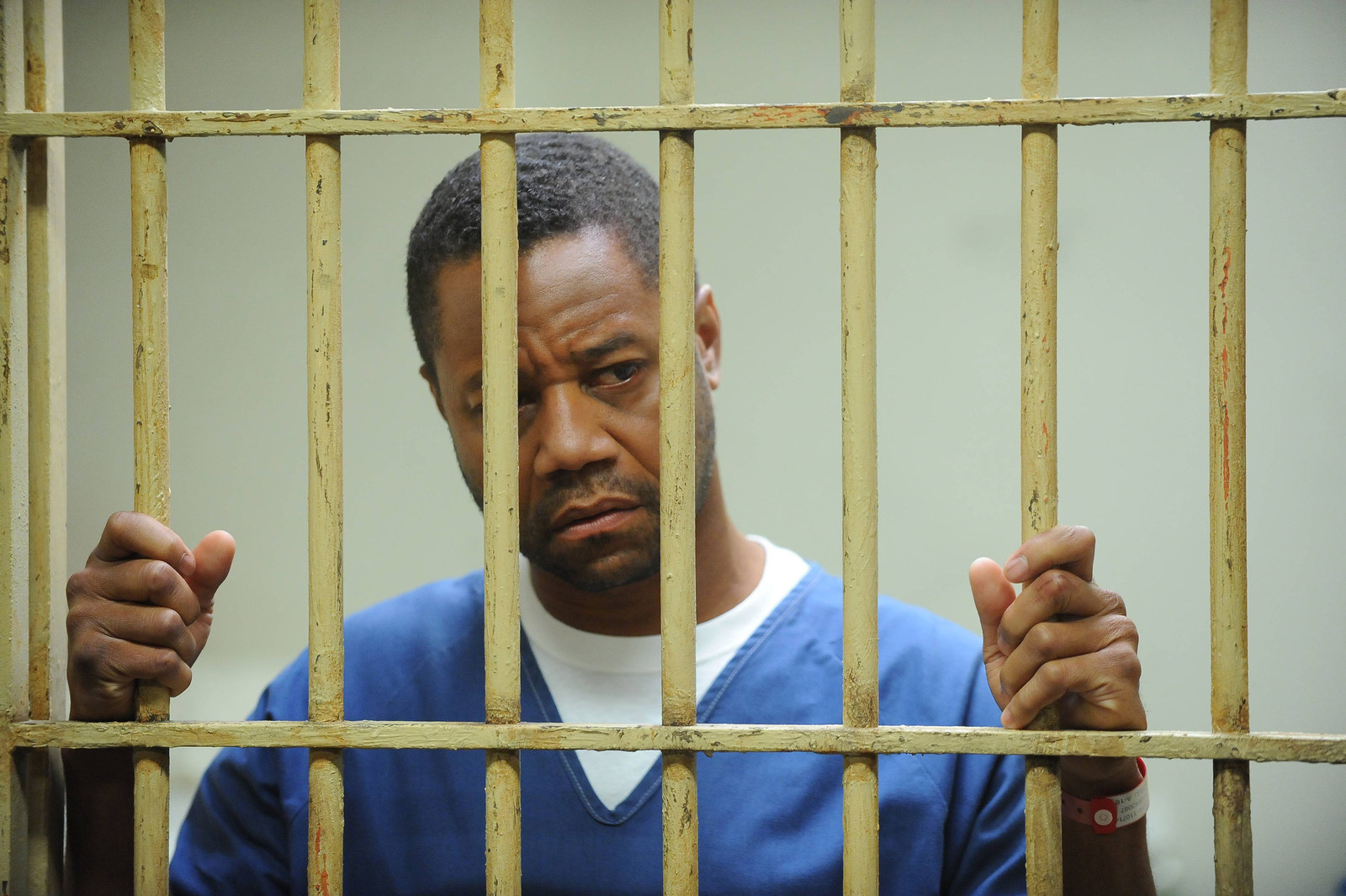
2. The story would be told from the point of view that Simpson had committed the murders.
In the prologue to The Run of His Life, Toobin writes, "Of course Robert Shapiro and Johnnie Cochran knew from the start what any reasonably attentive student of the murders of Nicole Brown Simpson and Ronald Lyle Goldman could see: that O.J. Simpson was guilty of killing them."
Starting with the murders — showing clearly that Simpson did it — and ending with his not guilty verdict is where Alexander and Karaszewski wanted the drama of The People v. O.J. Simpson to live: How could this have happened?
"We didn't see this as, We're going to retry O.J. Simpson," Karaszewski said. "We're going to show you how the case proceeded, and all the unusual things that happened, so that you will understand the verdict."
Providing that backdrop begins as soon as the first images of the show: the beating of Rodney King, then footage of the 1992 Los Angeles riots, which followed the acquittals of the four police officers who had attacked King. Indisputable problems within the LAPD, a quasi-military institution with racist strains in its DNA, had been shown in sharp relief during the King trial — and would be again in the Simpson case, especially as embodied by the racist detective, Mark Fuhrman (played by Steven Pasquale), who was one of its first investigators.
It was through Fuhrman's documented history that the defense — especially Cochran, but Shapiro concocted the strategy first — was able to advance the idea that there had been a police conspiracy against Simpson, and that they had planted the damning evidence against him. But before the audience sees the lawyers dream up that path, the show deliberately lays out the case against Simpson early in Episode 1. "Here's the bloody glove; there's the other bloody glove. His blood's at her house; her blood's at his house," Alexander said. "It's all in there. We see it. As it was presented to the prosecution, it's been presented to the TV audience. Then if we start to question what we saw over the next nine weeks, that's the experience that the jurors had."
Episode 7, called "Conspiracy Theories," depicts the trial's most famous visual moment, and the fatal bullet to the prosecution's case: when Darden asks Simpson (Cuba Gooding, Jr.) to try on those bloody gloves, and they appear not to fit. But earlier in the episode, Clark and Darden — and their unspoken romantic tension — take a road trip to Oakland for his friend's birthday party. In the company of a group of black men, happily drunk and at ease, Clark lucidly and charmingly schools Darden's friend who claims that the police framed Simpson.
The scene reveals how ludicrous the idea of the conspiracy is — how many people would have had to have been involved, all to frame a man the police generally revered and favored, who may well have had a solid alibi for his whereabouts. And when Darden's friend, after he listens to Clark's monologue spoofing the conspiracy, says, "Maybe," it also reveals something else.
That, as Karaszewski said, "the facts have nothing to do with it!"
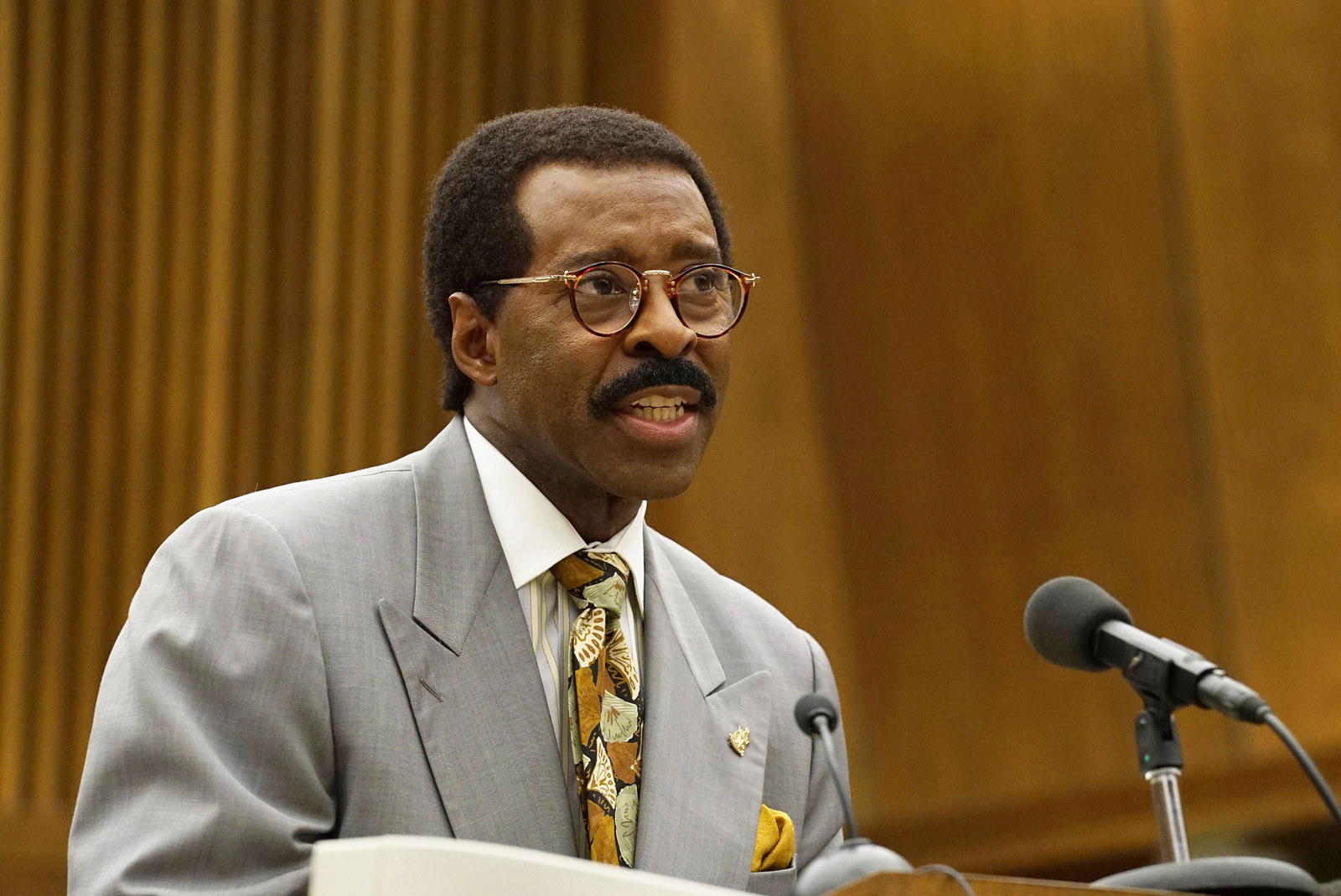
3. The deaths of black men like Trayvon Martin, Mike Brown, and Eric Garner made the trial, and Johnnie Cochran’s argument especially, particularly resonant today.
Simpson's guilt makes him an imperfect vessel to show an argument about national police corruption, but that did not bother Cochran. Though his methods were theatrical, Cochran had a fully formed, virtuous thesis about racist police methods on which he had based his law practice and public reputation. When Karaszewski and Alexander first conceived of creating him as a character, they thought they would lead with his flash, and eventually reveal, as Alexander called it, "the beating heart of Johnnie."
Then, after "a year or so working on the project, all the shootings started of black Americans by police all around the country," Alexander said. And it was clear there was nothing clownish about Cochran's philosophy. "We were saying to each other that the stuff that Johnnie was complaining about going back to the 1960s is still going on today — the country has not changed at all," Alexander said. They decided to insert a scene into the first episode in which Cochran and Darden discuss an instance of racially motivated police violence in which Cochran is clearly in the right.
Throughout the trial, Cochran stokes the embers still burning from the L.A. riots. But even he couldn't have imagined the existence of hours of tapes of Fuhrman explaining to a screenwriter that the LAPD was an institution propelled by racism, violations of suspects’ civil rights, violence, and misogyny — in the most vile language imaginable. The series’s penultimate episode this week, "Manna From Heaven," focused on the Fuhrman tapes, a last-minute entry into the trial after they were discovered.
"This is what black people have always known," Cochran says during the episode, calling the tapes in court a matter of "national concern." (To which Clark retorts that they are trying a double homicide, not "Iran–Contra.")
Karaszewski said that Cochran's view about what Fuhrman said was straightforward: "This is a smoking gun against police in the United States. This is beyond the O.J. Simpson trial. Everything we've always thought was being said, we have it on tape."
And that idea sets up the finale, according to Alexander. "The story is a tragedy for every character on screen, except for Johnnie Cochran," he said. "Because those tapes allowed Johnnie to get his message across, which is, at the end of the day, what he cared about."
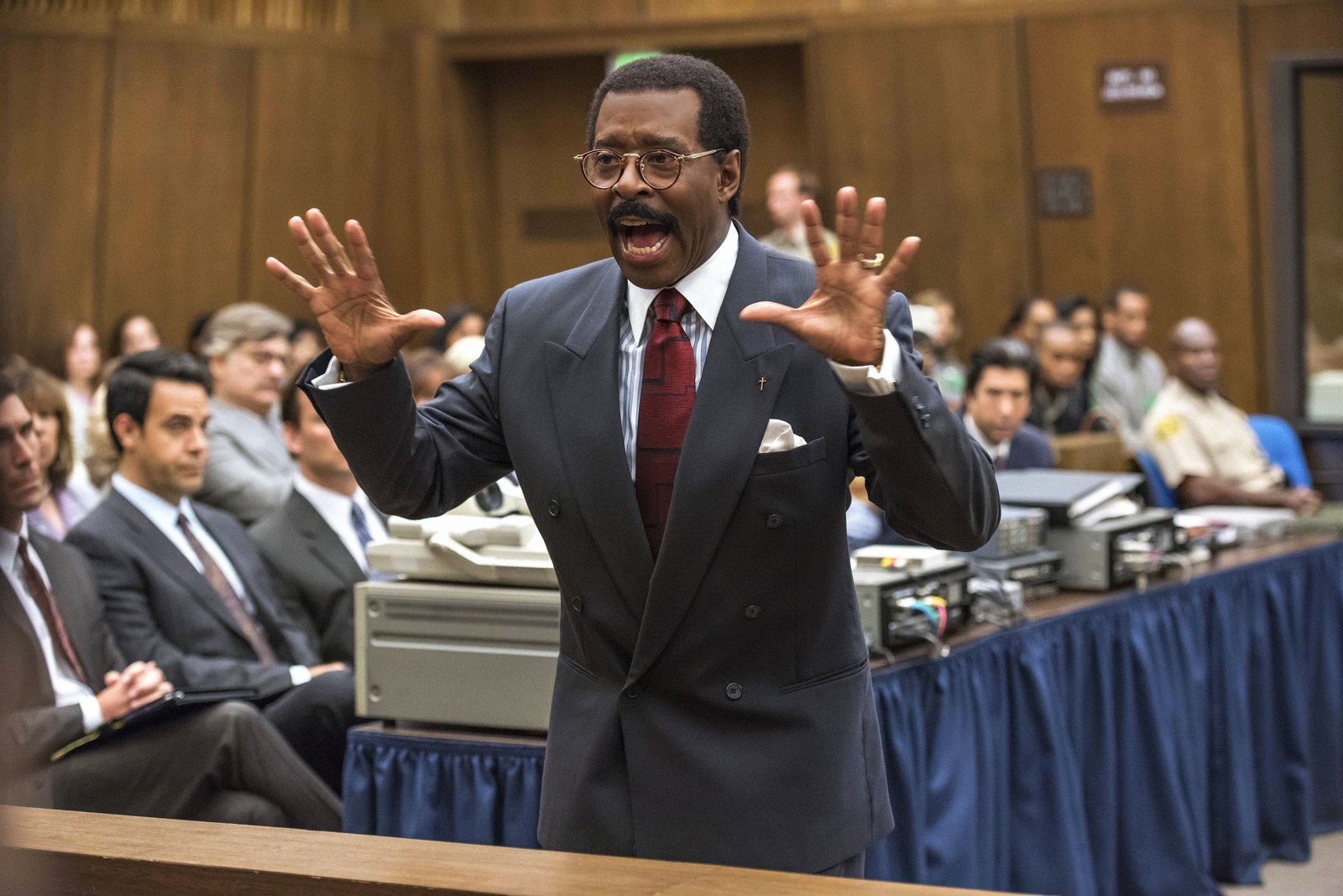
4. The writers got no pushback from FX about uses of the n-word (and the f-word).
Considering the language in the Fuhrman tapes, which contained repeated use of the n-word, and how often it came up during the trial in general, Alexander and Karaszewski worried that FX would not allow it in the show. Their fears, however, were unwarranted: "I don't think they had us pull back on any," said Alexander. "But I don't think anyone on the team was being gratuitous about it."
"Fuck" has also been said on the show twice, once at the end of the third episode, "The Dream Team," after Clark sees that Cochran has been hired for the defense. "Cochran: motherfucker!" she says as she reads the news in the paper. Its second utterance, in "Conspiracy Theories," is by Cochran after his ex-wife and former mistress appear on A Current Affair. His ex is asked about him physically abusing her. "Fuck!" Cochran yells as he turns off the TV.
"No one at the network said anything!" said Alexander.
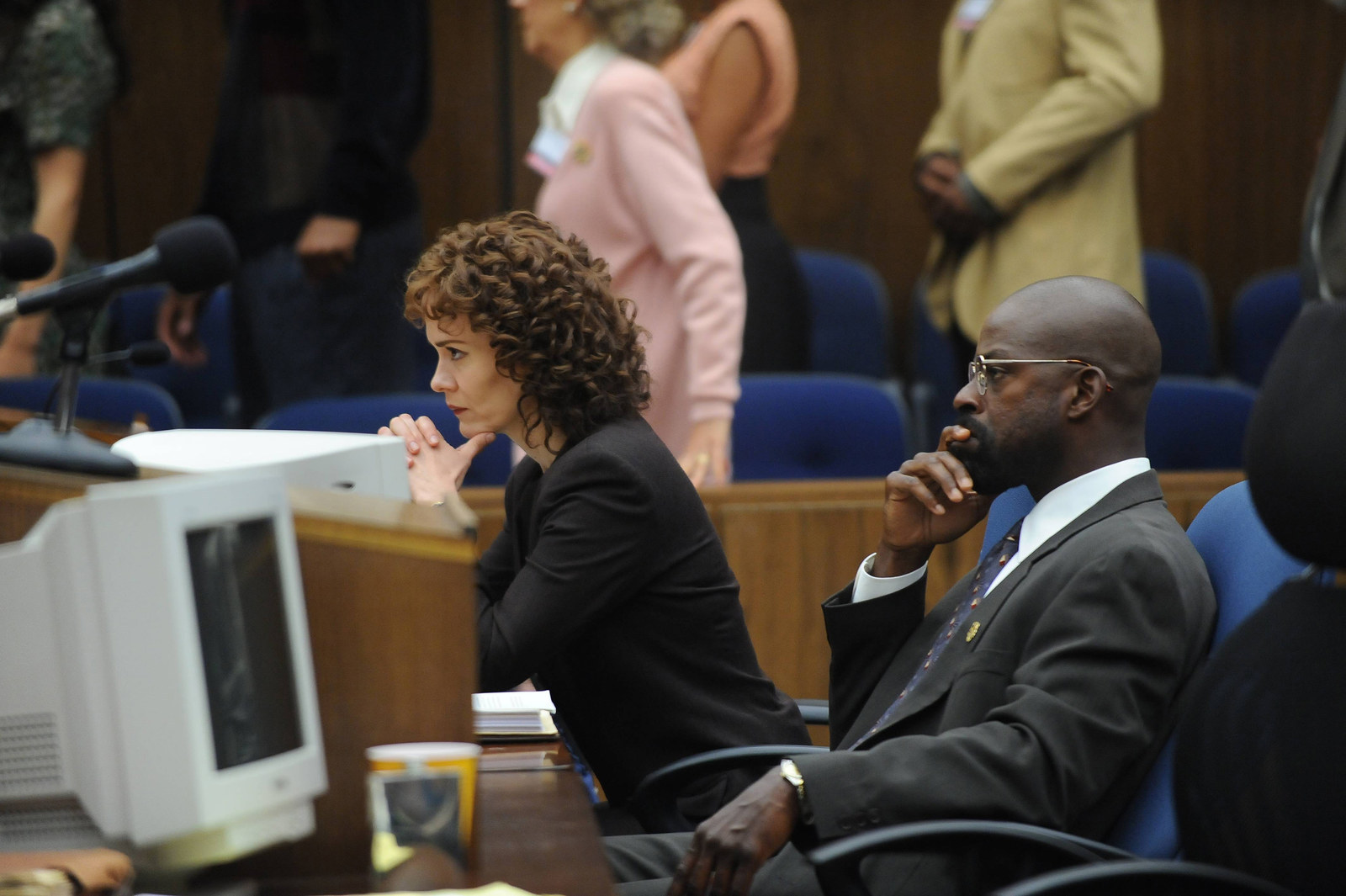
5. There was one person raising red flags about Fuhrman from the start: Darden. And no one listened to him.
As they contend with the Fuhrman fallout in "Manna From Heaven," Darden explodes at Clark. "You put me on this trial because you wanted a black face," he says. "But the truth is, you never wanted a black voice."
"I hope we weren't too on the nose for you," Alexander said of that moment.
"Our show was very clear about it,” Karaszewski added. “Chris was put on the case because the DA's office was afraid of Johnnie Cochran, and needed different ‘optics.’" Instead of turning the decision into a strength, Clark ignored Darden about his insistence that Fuhrman would hurt them.
Toobin in his writing is critical of Darden's skills as a trial lawyer, which reach their nadir when he gets Simpson to put on the gloves (against Clark's orders). When writing the character, Karaszewski and Alexander wanted it to come across that Darden was both out of practice in court and in over his head in a trial of this scale. It proved to be hard to find an actor who could exude earnestness, compassion, and charm — especially with Clark — and also be somewhat weak in court. "It was, on paper, an impossible part to play," Alexander said. "Larry and I kept calling him Charlie Brown in the first couple of episodes, because he's just this sad sack who hates his job and doesn't want to work there."
Brown auditioned early, but "got lost in the mountains of actors who were reading," according to Alexander. When they returned to him, they saw that Brown got the nuance of Darden. "When actors come in and audition with sides out of context, they're just reading the fiery speech, they're just selling it," Alexander said. "And Sterling might have been the only actor who understood that he's selling it — but we're not buying it. He captured that."
Considering the divisiveness of the case between black and white Americans, Darden was "totally torn apart for being a black man on the ‘wrong side,’" Karaszewski said. "And all he was trying to do was put a murderer behind bars."
When it came to the image wars during the trial, Darden and Clark were never going to win. "The defense team were professional pundits — they were all used to going on Larry King," Karaszewski said. "Marcia and Chris were not, and so they made missteps. And those missteps made them seem weak."
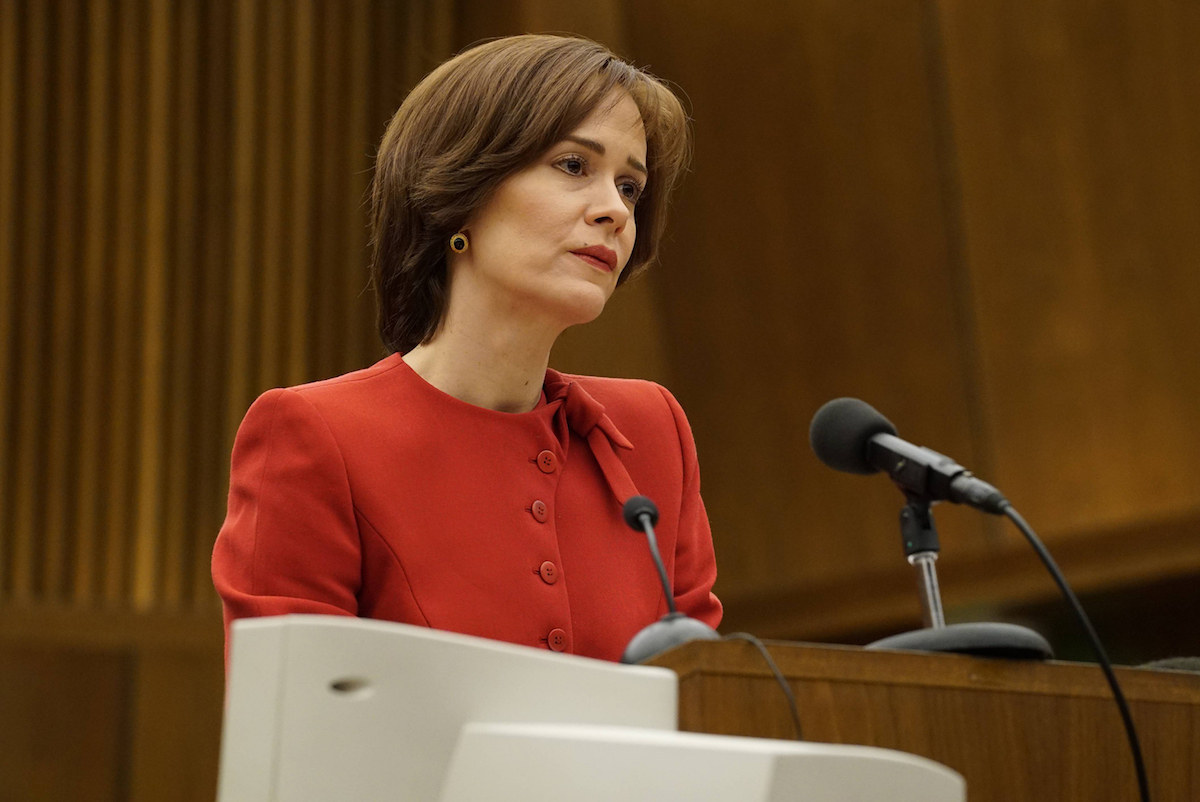
6. The misogyny directed toward Marcia Clark mirrored the misogyny aimed at Nicole Simpson.
With the hindsight of 20 years, Clark's journey through the Simpson trial — shown most particularly in "Marcia, Marcia, Marcia," the show's sixth episode — is both poignant and enraging. Her style was ripped apart by the viperous commentariat around the trial, she contended with daily childcare issues her male counterparts did not have to deal with, and she fought with her second husband for custody of their two children as she worked on the biggest case of her career. She couldn't even buy tampons in peace: "Uh oh. I guess the defense is in for a hell of a week!" a cashier says to her in "Marcia, Marcia, Marcia."
It was another role that Alexander and Karaszewski knew needed to be played by someone who would reveal Clark's humanity under a tough surface. Paulson was the first actor executive producer/director Murphy cast — she has been a mainstay of American Horror Story — and the writers said that as soon as they saw her performance, they knew that "she was knocking it out of the park," Karaszewski said.
"She's getting what we're trying to do on the page," he continued. "We're not white-washing Marcia. Marcia is very strong in her beliefs and she has no problem saying it and sometimes she says it too bluntly — but that shouldn't be a problem. But what Sarah gave us was a real person in there."
If the show is filled with resonance to the racial strife of today, Karaszewski and Alexander also point out how little has changed in the media's portrayal of serious, driven women. Karaszewski said, "All you have to do is listen to any 15 minutes after a Hillary Clinton debate: ‘Strident.’ ‘Why is she yelling?’ ‘Why doesn't she smile more?’ ‘Why does she dress that way?’"
The tabloid press and public's knee-jerk dislike of Clark was presumably — and more harmfully — felt by the jury as well, who also seem to have been susceptible to Cochran's argument that Nicole Simpson had been a slutty gold-digger who deserved what she got. "I think the world was blind to this 20 years ago: that the battering of Nicole led to the murder of Nicole," Alexander said, which was "disregarded by the defense and by the jurors."
The vicious mistreatment of Clark and the easy stereotyping of Nicole Simpson mirror each other in The People v. O.J. Simpson. "You had these dual layers of misogyny going on," Alexander said.
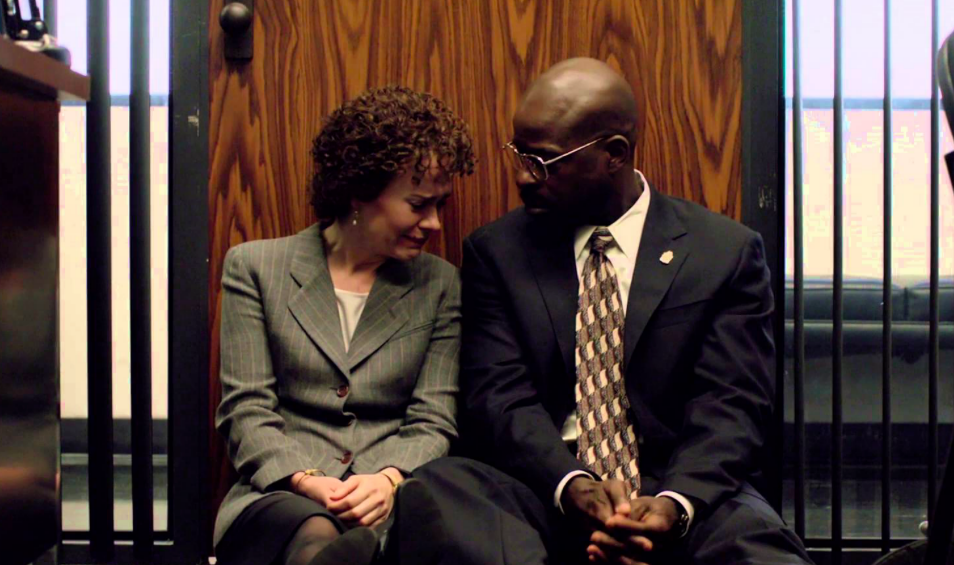
7. The show may seem like an unlikely narrative for a will-they-or-won't-they plot, but nevertheless The People v. O.J. Simpson has portrayed a fraught dynamic between Clark and Darden as a metaphor for their work on the trial.
"It was always rumored that they had a relationship," Karaszewski said. In the writers' research, they learned of the Oakland trip, and that the two prosecutors would dance and booze in the office during all-night trial preparation.
Darden's decision in "Conspiracy Theories" not to kiss Clark has repercussions in their work, causing a rift between them that leads to Darden's bloody gloves Waterloo. It shows, Karaszewski said, that their best chance is when they work as a team. "The key mistakes of the trial were when they didn't listen to each other," he said. "He didn't listen to her when she said, ‘Don't have him try on the gloves,’ and she didn't listen to him when he said, ‘Don't put on Fuhrman.’"
The sweet dynamic between Clark and Darden (and Paulson and Brown) ends up serving as the emotional core of the show. "They're the only people who see this thing from the same point of view, they're the only ones in this bubble. Of course they depended on each other. It was a relationship," Karaszewski said. "It's almost like sex would have been beside the point."
As far as sex goes, even in this fictionalized narrative, Karaszewski said, "We felt that we would honor the fact that neither one of them had said it went that far."
"We took it as far as they do," Alexander said with a laugh.
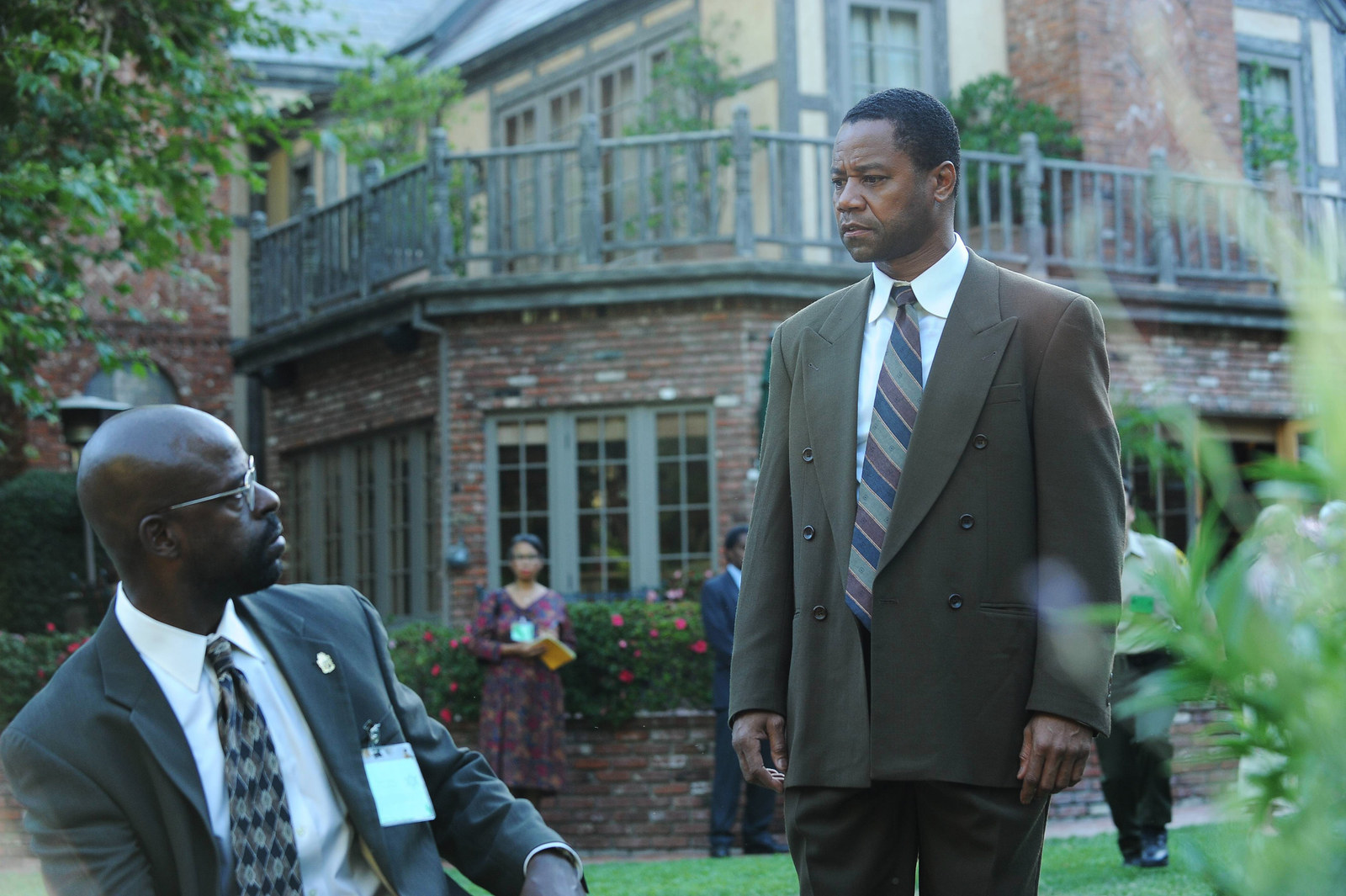
8. There is more of the Juice on the show than in Toobin’s book.
O.J. Simpson's actions led to the existence of The Run of His Life, but he is not a central character. Nor was he to be in The People v. O.J. Simpson, but Alexander and Karaszewski knew that whoever played him needed to be vibrant — especially for a good portion of the audience who would not remember Simpson as he was.
"My daughter's 22, my son's turning 20 this week," Karaszewski said. "They don't know the Towering Inferno version of O.J. Simpson, they don't know him from variety specials. They only him as this guy who allegedly killed his wife. They only know him from prison."
After Cuba Gooding, Jr. was cast, they ended up writing more for the Simpson character to do. "Once you've got an Academy Award winner, Cuba, playing the part, you've got to give him some meat to chew on: his frustrations, his denial."
Karaszewski pointed to a specific additional scene in the fifth episode, "The Race Card," when Cochran redecorates Simpson's house while he's in jail so the mostly black jury will relate to the defendant more. Simpson makes it clear to Cochran that he has overstepped. "When it becomes clear that the implication is that he's white, he's like, I'm not going to apologize. I'm not going to apologize for single-handedly getting myself to where I am. I shouldn't live in a good neighborhood? What exactly are you saying?” Karaszewski said. “It's a very effective speech, and I think it surprises the audience a little bit.”
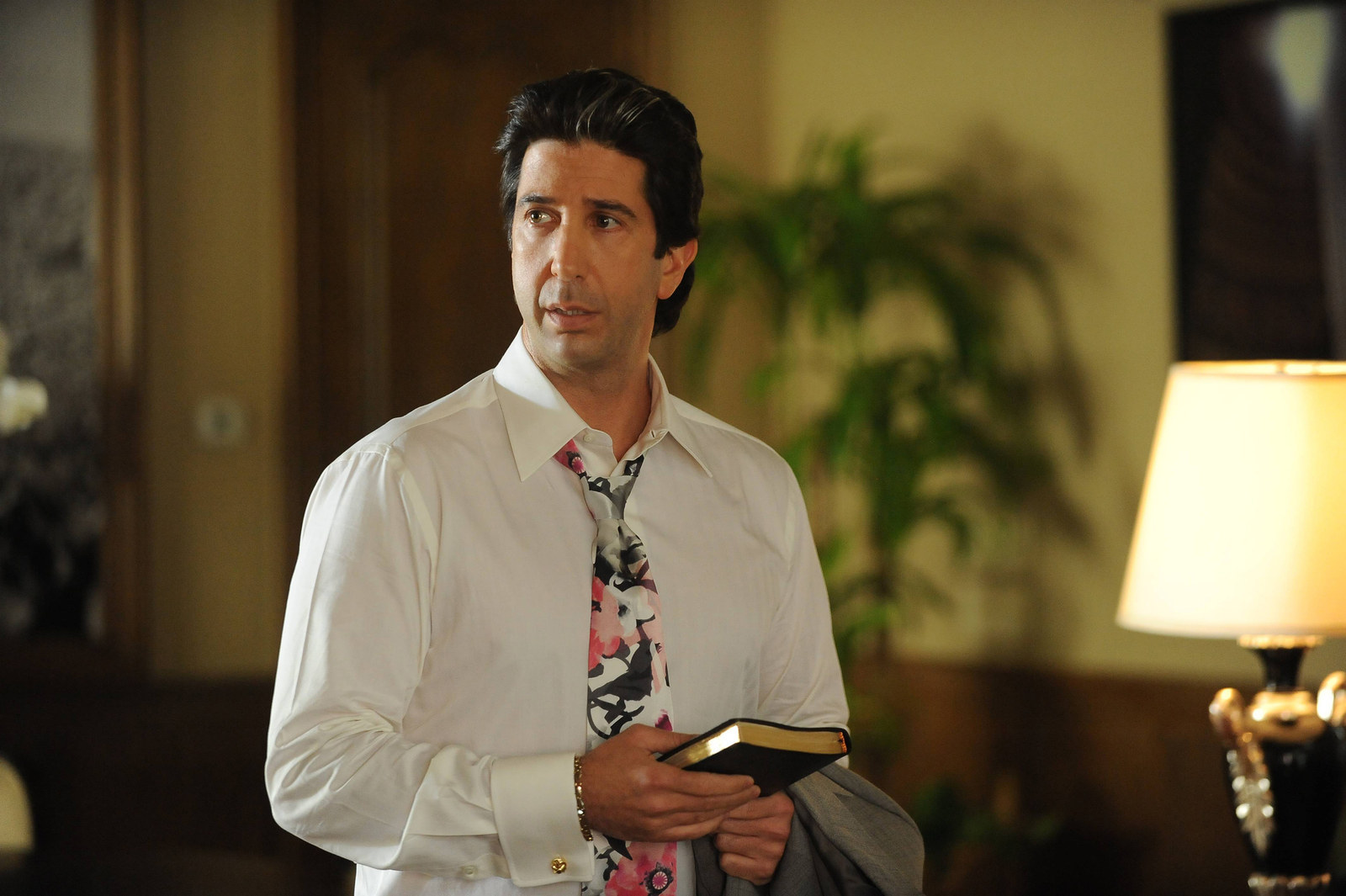
9. There’s also much more — and a much more favorable — Robert Kardashian.
Another surprise for Toobin constructionists is the prominence in the show of Robert Kardashian (David Schwimmer). He is barely mentioned in the book, except for a section introducing him as Simpson's "loyal friend" — one who seemed to have had a similarly ugly split with his own ex-wife as Simpson had. (Toobin quotes from a restraining order Kris Jenner had gotten during her divorce from Robert forbidding "molesting, attacking, striking, threatening, sexually assaulting, battering, or otherwise disturbing the peace of the other party.") Toobin also quotes someone anonymously who says that Kardashian was fame-seeking, and that this case was his way to become as famous as Kris and Caitlyn Jenner, who were seen on ubiquitous Thighmaster infomercials. "It bothered him that she was on TV all the time with the Thighmaster," this person says.
The People v. O.J. Simpson shows a very different Kardashian, from material the writers gathered from other accounts, including Kris Jenner's 2011 memoir. In the writers room, Alexander said, "We all started realizing we all really liked him — we had this realization that he was the only person in the show who was being selfless."
Alexander continued: "Robert Kardashian is there because he is a loyal friend and he's a religious man and he's an honorable man, and his best friend looked him in the eye and said, 'I didn't do it. Will you stick by me?' And he said, 'Yeah, I will.' His crisis of conscience became this really interesting thing to lay through the 10 hours."
Indeed, Kardashian is the only character who changes his mind as the story progresses, and through him, we can see Simpson's future as a pariah. In real life, Alexander pointed out, Kardashian's face fell when the not-guilty verdict was read in court (which you can see on YouTube). "He has a bit of a what-have-I-done? look on his face," Alexander said. "We also found out that he basically stopped speaking to O.J. after the trial. When he was dying of cancer in the hospital, O.J. tried to reach out to him and he did not want to see him. We thought, Wow. That says a lot."
And there's no denying that the writers were having fun with Kardashian — the least known member of the so-called "dream team," whose ex-wife and progeny are now the first family of the Celebrity Industrial Complex. In the show's premiere episode, as Simpson realizes his guilt is obvious and starts to panic, he runs into a kid's room at Kardashian's house, wielding a gun. "Do not kill yourself in Kimmy's bedroom!" Kardashian yells at him, in full Schwimmerian bellow.
It's been one of the show's most quoted lines, and was certainly a risk. "Tonally, we weren't afraid of it," Karszewski said. "And even though that's clearly a joke, Schwimmer's not playing it as a joke: He's saying, ‘Don't kill yourself in my daughter's bedroom.’ And it's only the fact that we know who his daughter becomes that it becomes funny."
"Yes, it could have gone very badly," Karszewski continued. "But for us, one of the reasons we wanted to tell the story is because it's so jaw-droppingly crazy at times. If you're not going to embrace that, you're kind of missing the point."
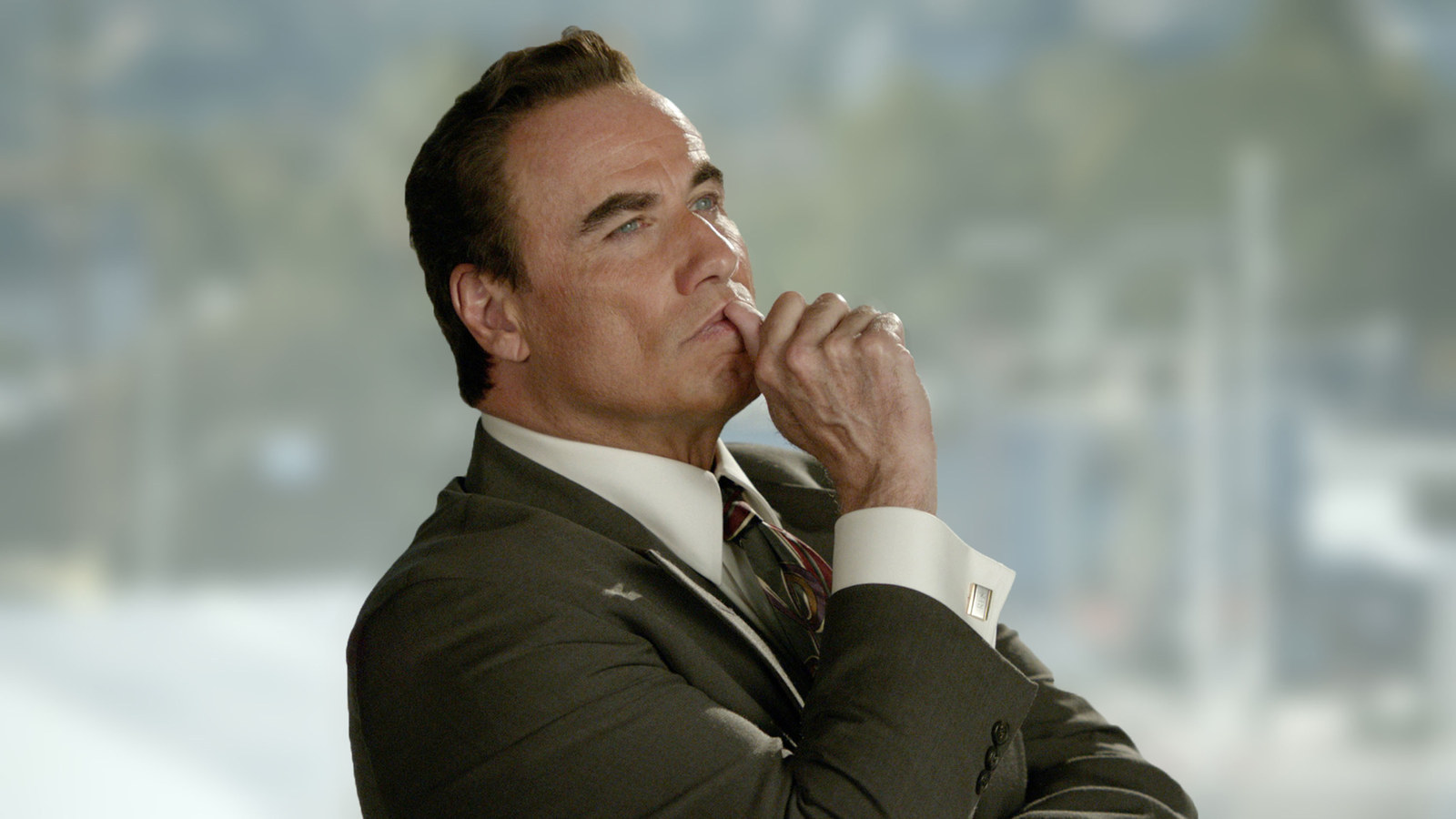
10. Robert Shapiro, on paper, isn't an over-the-top element of this story — but in John Travolta's hands…
"He's having fun," said Alexander. He added: "It was very important for John that he look like Shapiro, but still be able to move his face. John was very excited to be doing this part on the show, and was doing his own makeup work back home and sending photos, saying, 'How do you like this? How do you like this?' He was really into it."
Shapiro, famous for helping celebrities' legal problems go away, took over the Simpson case from Howard Weitzman. On the show, it's obvious he is sure of Simpson's guilt — so much so that he becomes out of step with the team of lawyers who begin to look to Cochran instead of him to lead them forward. Shapiro is someone who settles cases; he doesn’t mount defenses that might tear the city apart. So in setting up the chess pieces — a racism and police conspiracy defense, as well as bringing in Cochran — in order to scare a good deal out of District Attorney Gil Garcetti (Bruce Greenwood), Shapiro ends up making himself irrelevant to the defense.
"When you see John's performance, it's so controlled that when Shapiro starts losing control of the dream team, it's really funny," Alexander said. "This is a guy who's used to coming into a situation with his kabuki moves and vanquishing all opponents. Suddenly, he's in these bitchy little catfights with F. Lee Bailey and Johnnie."
As the episodes unfold, Travolta's performance deepens, seeming less campy and more connected to the story — Shapiro is truly afraid of what Cochran's strategy is doing to Los Angeles. "Robert Shapiro, who's a smooth guy — he has no interest in inflaming people!" Alexander said. "Let's have the L.A. riots, Part 2? That's the last thing he wants. Johnnie is willing to have some collateral damage, if that's what it takes."
The three lead performances in The People v. O.J. Simpson — Paulson's, Brown's, and Vance's — are grounded, natural interpretations of the characters. Schwimmer's starts at a high pitch, and then comes down; ancillary performances such as Connie Britton's Faye Resnick are in the realm of satire. Travolta has taken a risk here, with a big idea about Shapiro, a man whose reputation as a lawyer stemmed in part from his unruffled public persona.
"When you get a movie star of that caliber, you're getting him to do his thing," said Karaszewski. "If everyone were at that level, or that arch, maybe the show would not have worked. But having Travolta be there, it becomes exciting, I think. Some of my favorite performances, like Nicolas Cage in Vampire's Kiss, is when an actor takes a gigantic leap and tries something. I think for Shapiro and Travolta, it works."
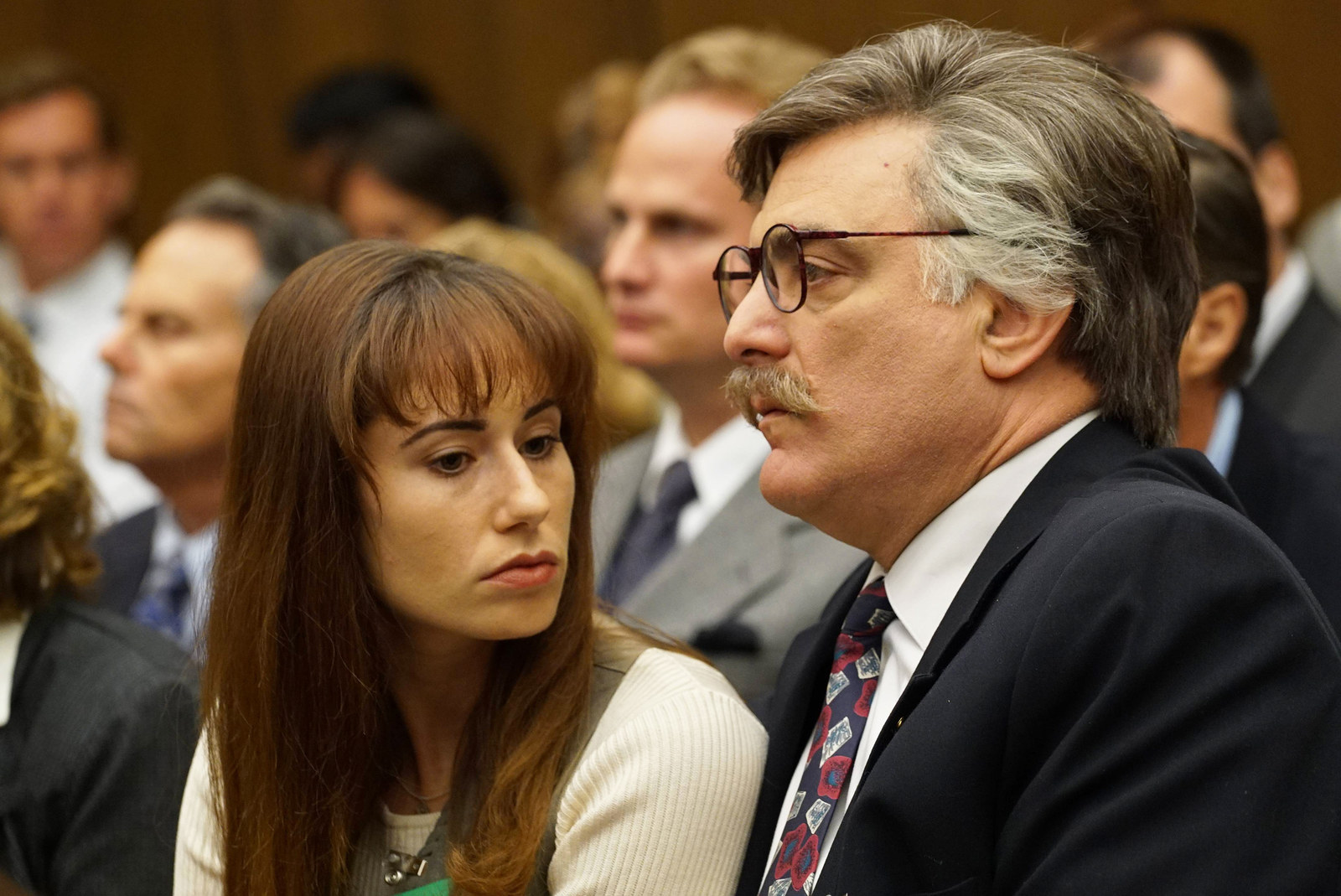
11. About the criticism from the Goldmans and the Browns...
The O.J. Simpson case was a transformative point in American culture, and in a story that huge, there have to be edits. One deliberate one was not making the Goldmans and the Browns into main characters. "We weren't going to bring an attitude toward the Goldmans or the Browns,” Alexander said. “They are the victims, and the families of the victims, and we wanted to treat them honorably."
Karaszewski added: "I know they think we didn't respect them by not including them, not talking to them. But in a weird way, that was how we were respecting them. There's a lot of humor in the show, and we didn't want to open them up to that criticism."
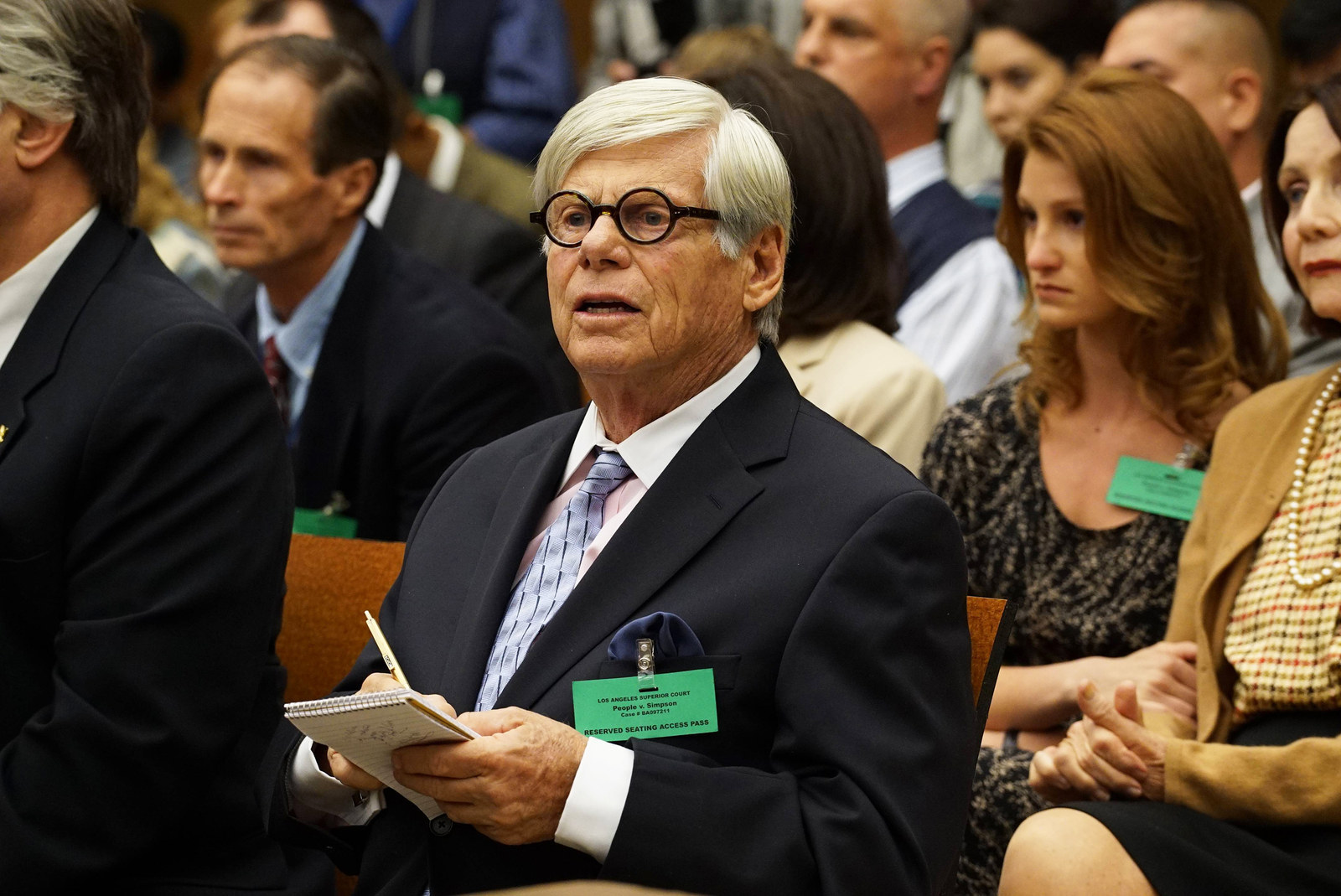
12. There’s a lot they wish they could have included, but there weren’t enough hours.
"At the beginning," Karaszewski said, "you think, Oh, we have 10 hours. It winds up that 10 hours isn't that much!"
The writers wish they could have had more of Robert Morse's Dominick Dunne, and introduced the character of Rosey Grier, the former football player/Free to Be…You and Me singer/minister, who was Simpson's spiritual counselor during the trial. "There is the story, which shows up in a couple of the books, that the deputies overheard O.J. confessing to Rosey," said Alexander. "Which is a good, juicy nugget. But then you have to introduce Rosey Grier!"
Karaszewski and Alexander said they wished they could have brought in the delightful oddities that Shapiro defended the man who had shot Clark's first husband, a professional backgammon player. (And that the shooter had officiated Clark's wedding to her second husband.) They also loved the fact that Simpson hired Shapiro because Roger King, a tycoon of syndicated television, called Simpson to recommend him — even though Simpson had never met King, and King had never met Shapiro.
Karaszewski in particular wanted to write in Ron Shipp, a black LAPD officer who had benefitted from Simpson's largesse and symbolized his cozy relationship with the police. According to Shipp, Simpson talked to him about his fear that he would fail a lie detector test because he had dreamed of murdering Nicole. In Toobin's account, Shipp testified about that conversation, and was branded a traitor. A defense lawyer hammered away at Shipp, who said that he felt "nothing but guilt" that he hadn’t helped Nicole Simpson. At one point, Shipp even directly addressed Simpson. "This is sad, O.J.," he said from the stand. Karaszewski said with a sigh: "That's a memorable moment."
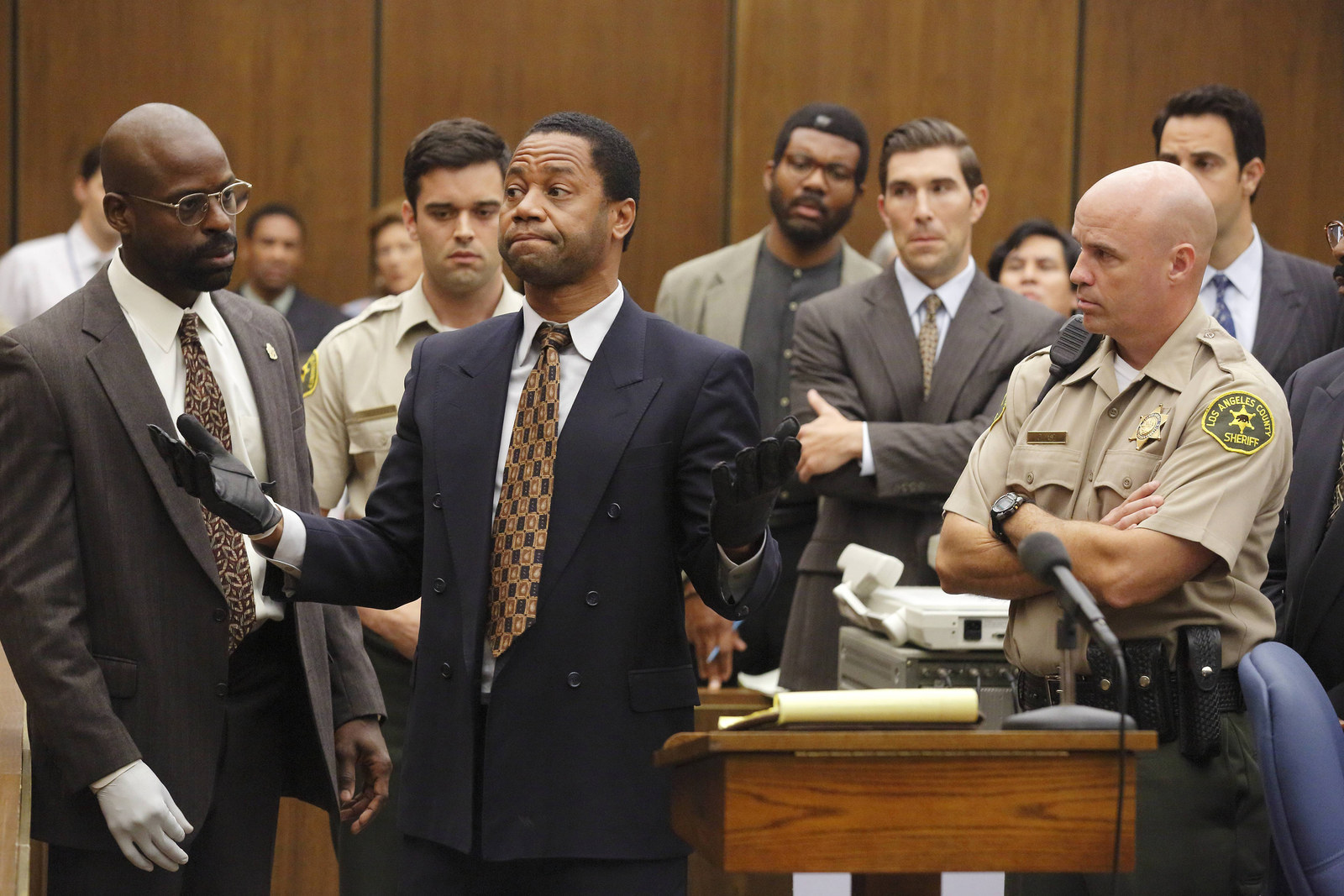
13. Yes, The People v. O.J. Simpson will end how you think. (No spoilers here except from life itself.)
Television critics have appreciated The People v. O.J. Simpson for its layers and gradations over its run — and a large audience has also turned out for the show, which is not always the case these days with critical favorites. So of course, Alexander and Karaszewski felt the pressure of wanting an excellent finale. "We were scared," Alexander said.
"There's been this joke all along: Don't spoil the ending!" Karaszewski said. "You're stuck with certain things. You're stuck with wrapping everything up, and you know what's going to happen." What they wanted to do was instill a sense of dread about what was about to happen — they compared it to the movie United 93, and to Titanic too.
"This thing is coming," Karaszewski said, "and it's going to destroy everyone's life."
